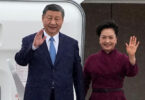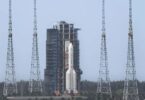In a significant address during the Green Pakistan Initiative conference, Chief of Army Staff (COAS) General Asim Munir laid out a vision deeply resonant with national aspirations: the essentiality of economic stability for achieving true independence.
His words, echoing through various state-run media channels, come at a crucial juncture for Pakistan, a country on a steadfast journey towards reclaiming its economic sovereignty.
The context of General Munir’s remarks is the ambitious Green Pakistan Initiative, a federal government project aimed at transforming 4.4 million acres of land across Pakistan into productive agricultural hubs.
The initiative, projected to generate around $40 billion over the next five years and create four million jobs, is not just an economic venture but a stride towards strategic autonomy. By bolstering Pakistan’s agricultural sector, the initiative promises to restore the country’s status as a key player in Asian economies, reminiscent of its esteemed position during the Green Revolution era. General Munir’s insistence on economic stability as a prerequisite for independence is a doctrine that resonates beyond the realms of economic theory.
It reflects a holistic understanding of sovereignty, one that encompasses not just political or territorial rights but extends to economic self-sufficiency. In today’s globalized world, economic dependencies can often translate into political vulnerabilities, making economic resilience a cornerstone for any nation’s true independence.
Moreover, the General’s speech highlighted the collective responsibility of the Pakistani populace in this grand endeavor. His call to unite against the detractors of Pakistan’s progress is an invitation to every citizen to partake in the national mission of economic revival. The emphasis on thwarting “negative propaganda and social media trolls” is particularly pertinent in an era where information warfare can significantly impact national projects.
The military’s role in this economic crusade is noteworthy. Historically, the military in Pakistan has been a pivotal force in national affairs, and its full support for the Green Pakistan Initiative signifies the strategic importance of this project. The military’s involvement is expected to bring discipline, efficiency, and a level of organization essential for the large-scale success of such initiatives.
This endeavor also smartly incorporates international cooperation, seeking to harness global partnerships to further Pakistan’s agricultural capabilities. This is a clear nod towards diplomacy as a tool for economic strengthening, acknowledging that in the interconnected world of today, allies can play a significant role in a nation’s economic journey.
The Green Pakistan Initiative also focuses on modernizing agriculture through what General Munir described as ‘agricultural malls’—centers equipped with varied facilities to aid farmers. This approach not only aims to boost agricultural productivity but also to decentralize amenities, making them accessible across the country. Such initiatives could significantly impact rural development, bringing technology and resources to the doorsteps of the local farmer, and potentially stabilizing rural economies.
Critically, the economic dividends from this initiative are designed to be widely distributed, with a substantial portion allocated to the provinces and a focus on empowering farmers directly. This is an inclusive strategy aimed at ensuring that the benefits of economic advancements are not centralized but reach every corner of the country.
In essence, General Munir’s address is a clarion call for a united front towards economic resilience as the pathway to independence. It underscores the belief that without a stable and self-sufficient economy, political independence may not be fully realized or sustained.
As Pakistan moves forward with its Green Pakistan Initiative, it does so with the dual goals of economic upliftment and enhanced national sovereignty. This vision of economic stability intertwined with national independence is not just a policy statement but a strategic blueprint for the future.
It is a comprehensive approach that promises not just to revitalize agriculture but to rejuvenate a nation’s entire economic landscape. For Pakistan, the journey towards economic stability is indeed a journey towards enduring independence, a voyage that requires the collective will, effort, and perseverance of its entire populace.







